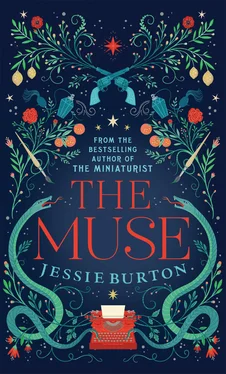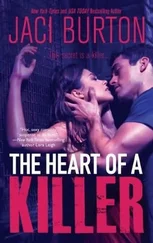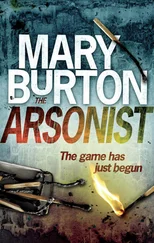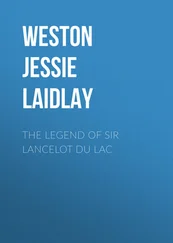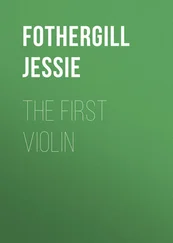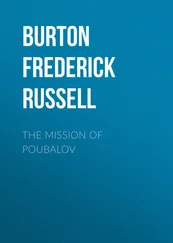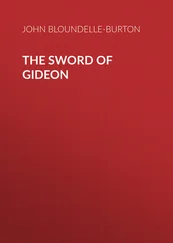‘It is hard,’ said Olive. ‘Daddy calls them her “storm clouds”, but that’s just a nice way of saying that she drags us around. The doctor says her mind’s like honeycomb, chamber upon chamber, broken, rebuilt again. She sees her pain in colours, you know. Steel Blue, Yellowed Bruise, German Measles Red.’ Olive gave a grim laugh and Teresa tried to process the language. ‘It’s an illness we’ve always had in her side of the family. I’ve got a great-grandmother buried in an unconsecrated grave, an aunt — whom no one speaks of — locked in an asylum. Then there’s a cousin, Johnny; he hated boarding school, and tried to drown himself in the Ouse. It’s wretched really, and I’m so selfish, I just worry I’m next.’
Teresa could hear the snag of Olive’s breath in her throat, before she inhaled deeply again on her father’s cigarette. ‘I can feel it sometimes, in my bones — just how easy it might be to catch it off her.’ Olive turned to her. ‘Do you think you can catch it, Tere?’
Worry flickered over Olive’s face, the spray of freckles over her nose, her dark brown eyes, her mouth ajar. ‘I do not think you will be mad,’ Teresa said, and Olive laughed and nudged her, and the touch of her shoulder on Teresa was shocking.
‘Well, that’s that, then. If you don’t think I’ll be mad, I won’t be. Just my mother.’ Olive paused. ‘Do you think she’s beautiful?’
‘Yes.’
‘Of course. I think she’s a sex maniac.’ Olive laughed, but the sound died quickly, because the description had the vague air of medical viability and seemed less of a joke than she might have wanted. The girls sat in silence for a while, watching the kites circle in the distance. Teresa wanted only that time might cease, that this view, and this strange, confiding peace, be all that existed. To have a friend like this would be to own the world.
‘I should be engaged to be married by now,’ Olive said.
‘There is a man?’
‘Oh, no. No. It’s just — most of the girls I know in London — I wouldn’t call them friends — are “taken” now. I’m not. But whenever I see their engagement rings, I feel sad. They’re so eager to run away, change their names. It’s all so uniform . Maybe they all like being the same as each other.’
Olive seemed to be talking to herself now, and Teresa was failing to manage the unstoppered bottle that was Olive’s English, pouring out words and words that seemed to have been waiting inside a long time.
‘And the fiancés!’ Olive said. She hooted ferociously. ‘They’re so peripheral. Do you know what “peripheral” means?’
‘No.’
‘On the outside. Not important. They’ve got interchangeable names, like Philip and Ernest and David. Just one floating face, of a man with no discernible chin. When I said I wouldn’t get married, one of these girls said to me, “You wouldn’t understand , Olive. You’ve been to Paris — I haven’t made it past Portsmouth.” Imagine being so idiotic! Imagine thinking being a married woman is the same as travel!’
‘Perhaps it is?’
Olive glanced at her. ‘Well, there are plenty of miserable wives in Paris. Some of them are my parents’ friends. One of them’s my own mother.’
‘Yes?’
‘Marriage is a game of survival,’ Olive said, and it sounded as if she had heard this somewhere else, before repeating it herself.
‘How did your parents meet?’
‘A party. Paris. Mother was seventeen. “An English nettle” — her words. Daddy was twenty-two. It was a bit shocking, her becoming engaged to a Viennese Jew. Her family took a while to accept it, but then they loved him.’
Teresa nodded, thinking this a simplification. Harold was not easily loveable, she thought. He reminded her of a beetle, deep within the wood and plaster of the finca’s walls. He needed his hard wings to be kept shiny, his antlers polished with a soft cloth, his body buffed and fed so he didn’t bite.
‘He was interned during the war,’ Olive said. ‘They let him out and he worked for the British government. He never talks about that. He represented everything Mummy’s life didn’t, I suppose. She gets bored so easily, and likes to cause a stir. Condiment Heiress, Cocaine Flapper, Rebel with Hun Groom. It’s all so garish,’ she added, and although Teresa did not understand the adjective, she could taste its jealousy.
‘It’s astonishing,’ Olive continued, ‘how easily she can hoodwink other people that she’s whole, when inside she’s spiralling, as broken as a shattered pot. I sometimes wonder whether we could have had a stable life — Daddy, walking daily to the Foreign Office — bowler hat, club on St James’s, mother at home doing embroidery. I doubt it. Don’t you doubt it?’
Teresa didn’t know what to say to this fizzing girl, with her plaintive, open face. The Schlosses were so short-handed with each other that it usually neutralized any depth of reference to their past lives. They were actors in costume, in the moment, performing through the house as if it were a theatre stage and Teresa their sole audience. She desperately wanted to see what happened when they took off their robes and walked into the wings, the darker corners where memories shifted. Olive had now lifted the curtain a little, and shown her the shapes and patterns beyond. Teresa worried that to say something wrong would make that curtain drop again, and break the spell of their solicitude.
‘Do you think you’ll marry?’ Olive said, in the face of the other girl’s silence.
‘No,’ Teresa said, and she felt that this was true.
‘If I do, it will be for love, and not just to annoy my parents, like my mother did. Do you think Isaac will marry?’
‘I do not know.’
Olive grinned. ‘If he does, you’ll be alone in your cottage. You’ll have to come and live with me and my husband. I wouldn’t want you to be lonely.’
‘Your husband?’
‘Let’s call him. . Boris. Boris Mon-Amour.’ Olive laughed and kicked her heels. ‘Oh, Boris,’ she shouted, opening her arms to the sky. ‘Come to me, take me!’ Breathless, she turned to Teresa and beamed. ‘I haven’t felt like this in ages.’
‘What do you feel?’ said Teresa.
‘Happy.’
Teresa drank in the image of this girl, in her Aran jumper and old brown shoes, who didn’t want her to be lonely, who had a foolish imaginary lover called Boris, and who had come to the ends of Spain to discover she was happy. And then she noticed the dried blood, crusted under Olive’s fingernails, and she remembered the axe, and Olive out here with her brother, and panic rose. She grabbed Olive’s hand.
‘What is it?’ Olive looked shocked by the contact, and stopped her rocking.
‘Your fingers.’
Olive stared down at her rust-coloured nails trapped in Teresa’s little paw. ‘I’m fine.’
‘It’s blood. Did he—’
‘Did he what? It’s not blood, Teresa.’ Olive hesitated. ‘It’s paint.’
‘You are in pain?’
‘Not pain, paint . I didn’t clean up properly.’
‘I do not understand.’
Olive considered. ‘Teresa, if I told you something, would you promise to keep it to yourself?’
It was a risky question, riddled with unknowns, but the alternative was being shut away from Olive, and that was something Teresa could not countenance. ‘Of course,’ she said.
Olive held up her little finger. ‘Put your finger round mine. Do you swear?’
Teresa linked her own with Olive’s, feeling the intensity of Olive’s gaze. ‘ Lo juro ,’ she whispered. ‘I swear.’
Olive reached out and crossed her fingers over Teresa’s heart, and Teresa, as if under a spell, lifted her hand and marked Olive with the same gesture, the heat of the other girl’s skin coming through her woollen jumper.
Читать дальше
